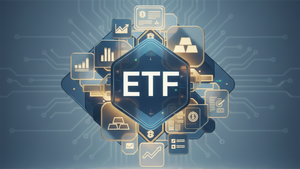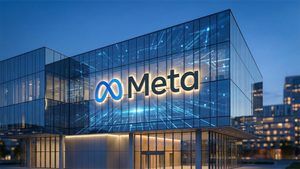Video: Climate adaption and resilience

I was recently joined by Aniket Shah, PhD, Managing Director at Jefferies Group LLC, to discuss climate adaption and resilience in a changing world.
Jeff Gittermn: Hi, I am Jeff Gitterman, your host of the Impact on FinTech TV down on the floor of the New York Stock Exchange. I’m joined this morning by Aniket Shah. He’s the managing director at Jefferies that leads a powerful research group into adaptation and mitigation. He’s one of the early people in this space, I think like ourselves talking about this. So it’s going to be great to have a conversation this morning. Aniket, welcome to the show.
Aaniket Shah: Thanks so much, Jeff. Thanks for having me.
Gittermn: So I always like to start this show by kind of a little backstory of why are you in impact and not in investment banking or sitting on one of these booths high-speed trading.
Shah: Yeah. Sixteen years ago, I sent an email to the director of the Earth Institute at Columbia University, and I asked him for a job and he was very kind to give me a job as his research assistant. This is Professor Jeffrey Sacks, a prominent economist who really spent his life thinking about sustainable development. I started working with him in 2009, and I haven’t stopped thinking about sustainable development since. He really also got me going about climate adaptation and resilience, which is what we’re going to talk about today.
My first project with Jeff was putting together a conference in New Orleans on the shared resilience of southern U.S. states and the Caribbean basin to extreme weather events. This was of course after Hurricane Katrina. And Jeff, it was fascinating, you had the most conservative governors from Alabama, Mississippi, Georgia, Louisiana, together in a room with the heads of state of Caribbean countries, talking very practically about climate adaptation and resilience.
There was no politics, there was no backlash. It was just: ‘This is real. And we need to make changes to our economy that are huge investment opportunities to deal with extreme weather events.’
And it’s been amazing following that topic since, because the investment community hasn’t gotten on board enough and perhaps after today you and I can convince more people to do so.
Gittermn: That would be wonderful. I think it would be interesting to start with what the roadblocks have been, and then we can dive deep into the why and where and how and benefit of actually investing in this sector. So from your perspective, you have this calamitous event, Katrina, you have a lot of interest as human beings are kind of loathed to worry about the short term and then forget quickly.
Shah: Sure.
Gittermn: And then all of a sudden nothing really happens around mitigation. I mean, you did some stuff in Katrina, but not nearly enough to really protect that.
Shah: Yup,
Gittermn: What do you think some of the other roadblocks have been?
Shah: Well, I think there are a few. I think the first roadblock is that climate adaptation was considered a bit of a cop out from the mitigation community. The idea was: ‘No, no, no. We have to solve climate change first by investing in solar and wind and batteries and energy efficiency, and if we just adapt to climate change, we’re not going to solve the underlying problem.’ And of course, you and I know Jeff very well, you need to do both. You need to mitigate and adapt. So I think first was this general view that if you spend too much time on adaptation, you weren’t focusing on the root of the problem.
I think the second problem around adaptation, frankly, has been who’s going to pay for it? Who’s going to pay for the migration of entire communities out of Louisiana, out of Florida, out of California? Is it the state? Is it bond investors? Is it insurance companies? And so there was always this question of what’s the business model?
Gittermn: It’s like the hot potato game.
To catch the full conversation, you can watch my interview with Aniket Shah.
More Fintech TV: Keeping impact on track
More News
View More




Recent Quotes
View MoreQuotes delayed at least 20 minutes.
By accessing this page, you agree to the Privacy Policy and Terms Of Service.